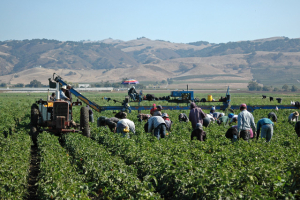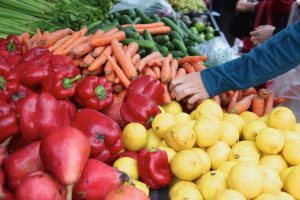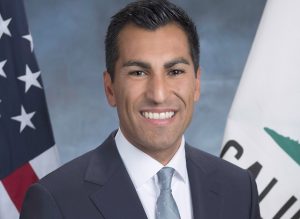Michael’s Thanksgiving Day Blog
November 20, 2008 Michael R. DimockToday is Thanksgiving Day. It is a very important day in our culture. It emerges from fact and has become mythologized and sanctified by time and official acts. My favorite President, Abraham Lincoln, made this day a national holiday during the Civil War, the nation’s greatest internal test of unity. One reality remains at the core of this holiday; it is the focus on food.
Food is life. If we are to give thanks we of course cannot forget food and its many sources. It begins with nature and the energetic, elemental, and biological cycles that underpin plant and animal bounty. It continues with people and the processes they manage to transform nature’s raw bounty into ingredients and meals. The diversity of these people and processes correlate to the diversity of ecosystems and species. The health of the elemental cycles and ecosystems directly affects the health and quality of the foods that arrive on our Thanksgiving table. Food of high quality leads to a high quality of life.
And life is what I awoke thinking about this Thanksgiving Day. It occurred to me that existence is something that I feel gratitude for because the simple fact one is alive is almost a miracle. Homo sapiens, in their modern form, are roughly 100,000 years old. That means in order for you or I to be alive on this day there were 4000 consecutive successful births in our genetic line. If one considers the three million years of hominid evolution that includes our ancestors who diverged from our primate cousins, each of us has resulted from nearly 200,000 generations of successful breeding and rearing of offspring. Given the rough and tumble existence of our species, and the raw biological competition of our ancestor species, each life is an amazing triumph. Existence is not to be taken lightly.
This clear revelation made me think about how much a life must count. Many of us have chosen to work on the repair and revitalization of our food system. I, for one, am grateful to have found this work. It is meaningful and significant. If we are successful, our species and all the species and systems upon which we depend will fair better going forward. It is vital that we be successful. I would argue that, in fact, we have a responsibility to be successful.
Although the highest life form on this planet, humans are neither so evolved as to conclusively know from what we originally emerged, nor sufficiently wise as to avoid causing great destruction to living systems all around us, human or otherwise. In the face of these realities it seems fitting and proper that we remain humble and respectful of all life and the biological processes upon which life depends. If we do this, we can, on this day, of all days, fully and rightfully enjoy the bounty that lay before us upon the millions of tables of this nation.



